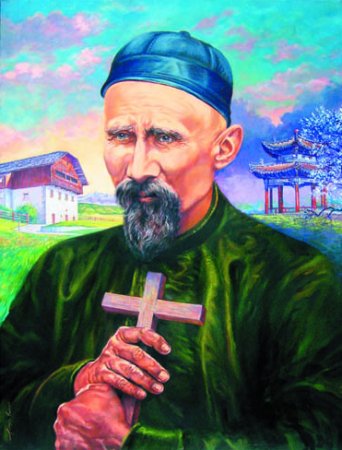by Arnold C. Biago, SVD
Homily delivered on the Feast of Our Lady of Consolation, September 4, 2007 for the Sisters of Augustinian Recollects
Have you heard about the SILENCE OF GOD!
The PDI yesterday runs a news item about Mother Theresa with the following heading, “She suffered from the Silence of God” referring to the comment made by Pope Benedict concerning the sentiment the saintly nun identified by a book. The book, about to be released tomorrow, claimed that Mother Theresa “was deeply tormented about her faith and suffered periods of doubt about God”. On this the Pope comments that this is not unusual, “All believers know about the Silence of God.” Thus, “Even Mother Theresa, with all her charity and work of faith suffered from the Silence of God.”
What do we mean really by “the Silence of God.” Non-believers usually argue against faith in God because of the many pains, losses and violence that people are made to suffer and endure in this world. If God is good and loving, how come he allows the school children of Ginsuagon,
In Auschwitz concentration camps, a rabbi was among those spared from the Gas chamber and one prisoner confronted him: “Rabbi, where is God now that our people are being exterminated, when even our children are led to die of poison gas?” The Rabbi was silent for a while and said, “God is there among those children, God is with those who are led to the gallows of death.”
The point is, if at times we feel abandoned by God, when God is silent, he is with us, also suffering. This is what Jesus did. He live among us, and shared with our pains and suffering. Jesus is God who underwent the scourging; he carried the cross, and was nailed on it. The Silence of God is God’s share and participation in our sufferings. With Jesus Christ’s passion and death, our experiences of pain and suffering are given new meaning. It is in this way that we can also look at Mary, as our Lady of Consolation. At the foot of the cross, the sight of Jesus hanging on the cross, gasping for his last breath, and struggling to say the words, “Woman, behold your son.” “Behold your mother,” is no easy sight to behold. Mother Theresa and many of us would have no other experience but the silence of God. But we have Mary, who has the heart to see at all times God’s hands constantly at work whose mysterious ways she never doubted but rather fully trusted. In Mary’s famous words, “let it be done to me according to your Word.” Certainly, Mary is our lady of consolation who by her undivided trust heard of the divine voice even in the silence of God.
Aside from the Gospel, the other readings too reorient our understanding of suffering. In the book of the prophet Isaiah, the experience of difficulties is seen as the sign of the imminent coming of the Lord whose inauguration brings consolation, relief and new opportunities. While in his second letter to the Corinthians, Paul informs them of his difficult experiences not to sadden them but to let them know how much he love them, meaning, no amount of pain can stop Paul from loving the
In our practice of faith, the practical advice we often heard has a grain of truth in it: “we cannot solve a problem by running away it.” In moments we doubt our faith, we are reminded to Trust more and more in God. Doubt is not resolved by abandoning our faith.





Walang komento:
Mag-post ng isang Komento